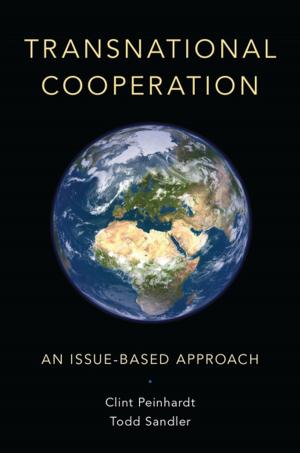Win-Win Ecology
How the Earth's Species Can Survive in the Midst of Human Enterprise
Nonfiction, Science & Nature, Science, Biological Sciences, Ecology, Nature, Environment, Environmental Conservation & Protection| Author: | Michael L. Rosenzweig | ISBN: | 9780190208233 |
| Publisher: | Oxford University Press | Publication: | April 24, 2003 |
| Imprint: | Oxford University Press | Language: | English |
| Author: | Michael L. Rosenzweig |
| ISBN: | 9780190208233 |
| Publisher: | Oxford University Press |
| Publication: | April 24, 2003 |
| Imprint: | Oxford University Press |
| Language: | English |
As humanity presses down inexorably on the natural world, people debate the extent to which we can save the Earth's millions of different species without sacrificing human economic welfare. But is this argument wise? Must the human and natural worlds be adversaries? In this book, ecologist Michael Rosenzweig finds that ecological science actually rejects such polarization. Instead it suggests that, to be successful, conservation must discover how we can blend a rich natural world into the world of economic activity. This revolutionary, common ground between development and conservation is called reconciliation ecology: creating and maintaining species-friendly habitats in the very places where people live, work, or play. The book offers many inspiring examples of the good results already achieved. The Nature Conservancy, for instance, has a cooperative agreement with the Department of Defense, with more than 200 conservation projects taking place on more than 170 bases in 41 states. In places such as Elgin Air Force Base, the human uses-testing munitions, profitable timbering and recreation--continue, but populations of several threatened species on the base, such as the long-leaf pine and the red-cockaded woodpecker, have been greatly improved. The Safe Harbor strategy of the Fish & Wildlife Service encourages private landowners to improve their property for endangered species, thus overcoming the unintended negative aspects of the Endangered Species Act. And Golden Gate Park, which began as a system of sand dunes, has become, through human effort, a world of ponds and shrubs, waterfowl and trees. Rosenzweig shows that reconciliation ecology is the missing tool of conservation, the practical, scientifically based approach that, when added to the rest, will solve the problem of preserving Earth's species.
As humanity presses down inexorably on the natural world, people debate the extent to which we can save the Earth's millions of different species without sacrificing human economic welfare. But is this argument wise? Must the human and natural worlds be adversaries? In this book, ecologist Michael Rosenzweig finds that ecological science actually rejects such polarization. Instead it suggests that, to be successful, conservation must discover how we can blend a rich natural world into the world of economic activity. This revolutionary, common ground between development and conservation is called reconciliation ecology: creating and maintaining species-friendly habitats in the very places where people live, work, or play. The book offers many inspiring examples of the good results already achieved. The Nature Conservancy, for instance, has a cooperative agreement with the Department of Defense, with more than 200 conservation projects taking place on more than 170 bases in 41 states. In places such as Elgin Air Force Base, the human uses-testing munitions, profitable timbering and recreation--continue, but populations of several threatened species on the base, such as the long-leaf pine and the red-cockaded woodpecker, have been greatly improved. The Safe Harbor strategy of the Fish & Wildlife Service encourages private landowners to improve their property for endangered species, thus overcoming the unintended negative aspects of the Endangered Species Act. And Golden Gate Park, which began as a system of sand dunes, has become, through human effort, a world of ponds and shrubs, waterfowl and trees. Rosenzweig shows that reconciliation ecology is the missing tool of conservation, the practical, scientifically based approach that, when added to the rest, will solve the problem of preserving Earth's species.















